As I was driving to a producer meeting yesterday in central Iowa I had time to look back at my career in the pork industry. I realized that I’ve been giving presentations to producer groups for at least 40 years with my first presentations done while a graduate student at Purdue University.
While our production methods have evolved and our expectations of ‘normal’ performance have changed drastically in these 40 years, many of the topics of interest to producers remain the same. My first talks at Purdue dealt with manure decomposition and its value as a fertilizer resource. Last week at the Illinois Pork Congress one of the topics at the educational seminars was ‘Fertilizer values – Saving money using manure’.
The need for education of both owners and pig caregivers (who may or may not be the same people) continues. In the past this need was often met by extension specialists. How many states had ‘Swine Days’ where the specialists traveled to different parts of a state to present topics of interest to producer groups.
As public funding for university extension effort continues to decline, extension is no longer able to meet this ‘hands-on’ training need. There are now several private entities doing this training for a fee. For larger production systems, this fee gets spread over a large number of pigs/employees and is often viewed as a worthy investment.
On the other hand, there still is a large body of independent pork producers. These producers may have shares in a breed-wean unit as their source of pigs or they may still operate as traditional farrow-finish producers. These are the ones who often feel they lack access to educational resources or the expense appears too great to use the commercial services currently being offered.
If you fit in this latter category – where do you turn to get updates on new methods of production, evaluation of product claims, etc? It takes a real effort on your part to seek out this information whereas in the past you could often just call your extension specialist to get some advice. While the internet has lots of information, you as a producer/caregiver are left with the responsibility of seeking it out and sorting it out for the ‘gem’ that will make a difference on your farm. If you have employees with limited English or reading skills, the internet may not have what you need.
As I make slow ‘progress’ towards retirement, I remain concerned about the educational needs of the industry and how this need will be fulfilled for many in the industry.

